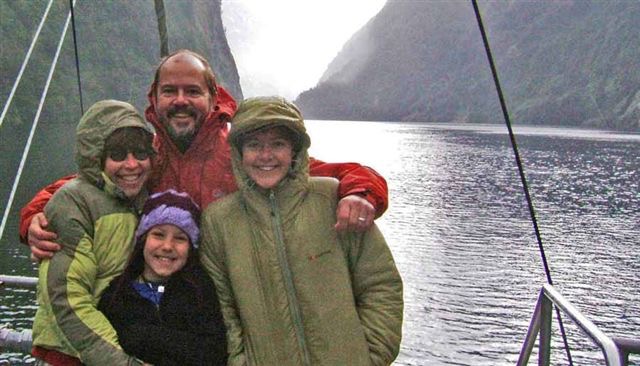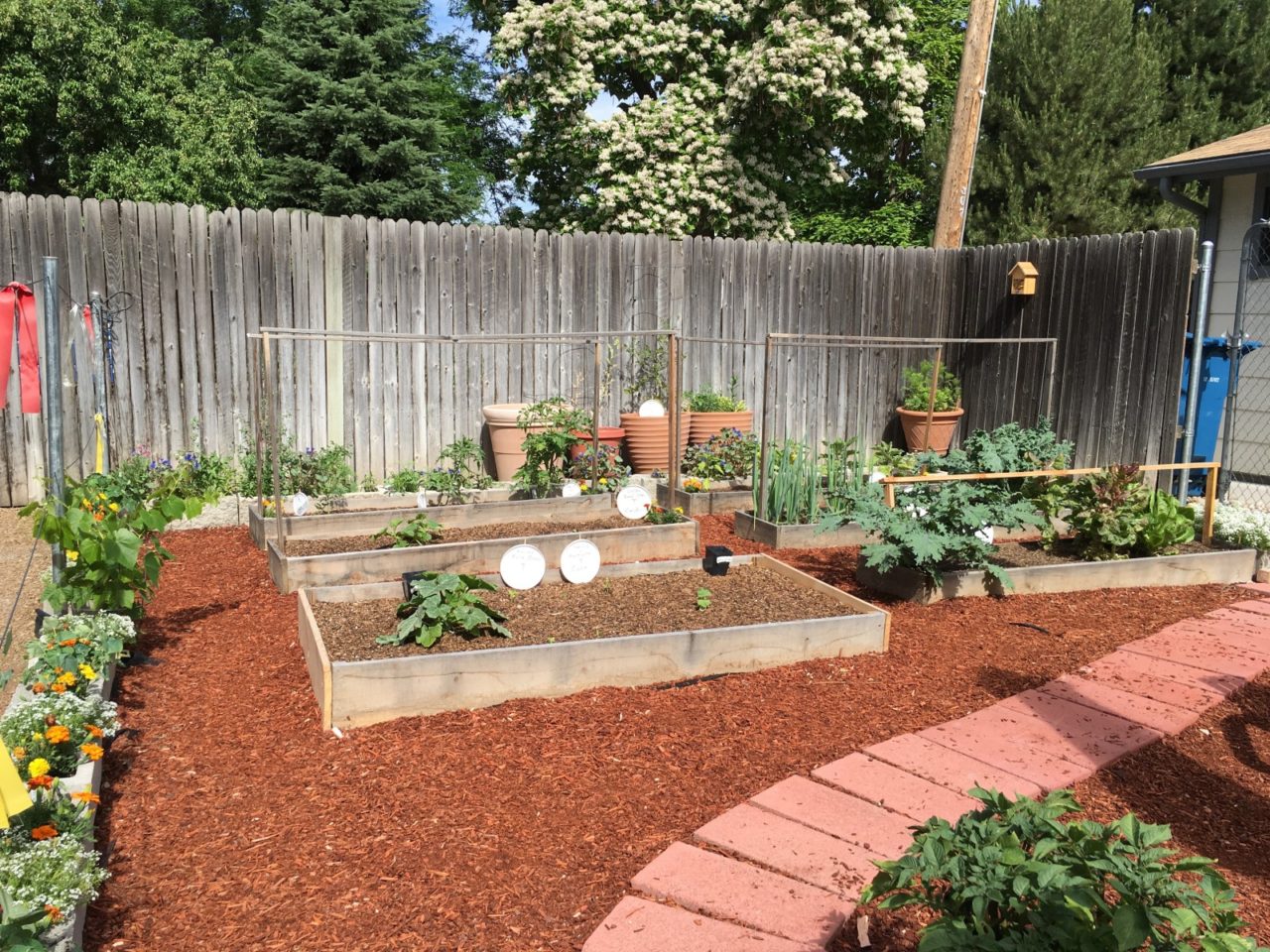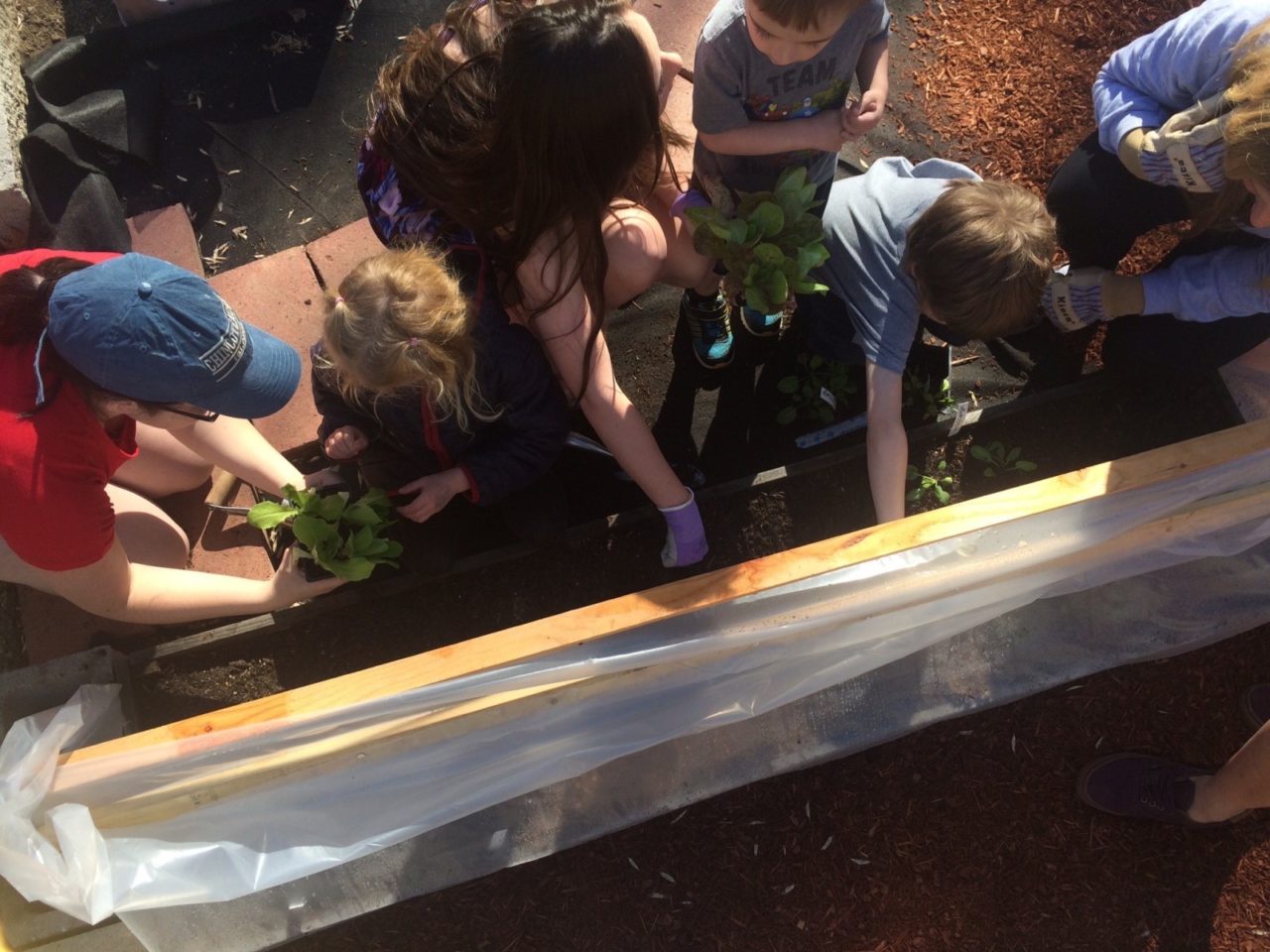Grow Good Grub
“It was so rewarding to give back to the community that supported me throughout my childhood.”

Background Information
Mahalie grew up in an upper middle class family, eating home cooked meals almost every night, with fresh, usually organic, vegetables and meat. Her family eats healthy, balanced meals, something she claims she “used to take it all for granted.” However, her awareness of nutrition started in third grade after discovering she was allergic to all dairy products, wheat, gluten, and eggs. Reading food labels and turning down the ice cream bars or sandwiches made at playdates became part of her regular routine. She became extremely conscious of the food and fuel put into her body, and the level of performance based on it.
Along with her dietary restriction, she helped her father in their garden every spring. Through this, she came to the realization that not all her friends ate the same quality of food. Their pantries were stock piled with Pop Tarts and Krogers Mac and Cheese, not raisins dried from a grape vine in their backyards or freshly picked tomatoes. She developed an appreciation for the nutritious foods she used as fuel, but also a lense of recognition for those who don’t have the same fuel options. She wanted to share her experience with others through her Culminating Leadership Project. It’s extremely rare for a third grader to understand food labels or what nutritious versus unhealthy food is, but it doesn’t have to be. It’s also uncommon for kids to be able to have a garden or build a relationship with the food they put into their bodies. Her dream was to facilitate the implementation of school gardens so that there is an interactive classroom that gets kids involved in their health.
If there is an investment in nutritional education at a younger age, kids will be more motivated and willing to take charge of their health sooner. The food industry targets children with their colorful graphics, and parents will often buy what their children want, sucked in by advertisements of “20% Less Sodium” or “25% More For Same Price.” She finds it crucial to build a healthier community and fight against the obesity epidemic (18% of Idahoan children are obese) that has hit the community. If children are kept involved in their own health and nutrition in school, where they spend a majority of their time, they can begin to build healthy lifestyles.
Implementation of Project
The initial stages of the project were a little hectic. Mahalie and her team, Sue Olson and Josie Englert, tried reaching out to nurseries and greenhouses to get donations and Mahalie tried to use the Grow Good Grub Facebook page as a means to get donations from the community who found initial interest in the project.
“Reaching out through social media was really difficult for me, but I realized it didn’t matter what other’s thought. It’s my passion and it’s what I care about. So I posted about the project on Instagram too, because why not.”
– Mahalie Hill
She was extremely overwhelmed with the start of action days after a lack of response on either front and with the size of the project she was now confronting on what seemed like her own. The initial plan was supposed to not only start the garden but to also have people teach mini lessons and demo days at the school and have a teaching plan for teachers to incorporate the garden into their science and math curriculums. However, after meeting with the head of Rose Hill Montessori, Christel Nordhausen, they decided giving the teachers the freedom to use the garden as they please and let the school handle bringing people in if they wanted, would be a much better plan.
Mahalie started actions days at Rose Hill in mid March with volunteers from her Community Leadership class. The regulars who came almost every week were Tessa Park, Kaitlyn Lindholm, and Carleigh Coba, and Sue would meet them there. The first couple weeks were fairly cold, and she wasn’t quite sure what needed to get done first, so they weren’t the most productive.
“I was really bad at delegating tasks the first month or so, but I realized that if I told a group to take on a task that they would get it done. It may not be the way I would’ve done it but they’d take care of it and that was fine with me. By the end, our group was an efficient task machine.”
– Mahalie Hill
They began by redoing the garden beds by fixing the screws at the corners and making sure they were square and mixing the old dirt with new soil. They also planted starts in trays with the help of some of the Primary class students (ages six to eight). Sadly, the starts ended up freezing because they were planted outside too early, even with plastic coverings. Somewhat disheartened, the group brainstormed and decided to buy starts with the funding from Rose Hill’s PTO garden fund, left from the last attempt to get the garden started.
As the weather started to warm, mulch was laid down in the initial mud swamp around the beds, dirt was put in the cinder blocks surrounding the garden area, and the grape vine came back to life. With lifted spirits, the volunteers planted the starts in the raised beds and spread flower seeds with the young students, whose interest grew with each week they came to work. The compost was started back up again, with hopes that the school would use it for their food waste from lunch and snack time.
Results of Project
By the beginning of May, Mahalie and her team handed the project over to Rose Hill to take complete ownership and care of the garden. Mahalie created guidelines for the garden care including crop rotation, instructions for the compost, snack ideas using garden produce, and care for each of the plants. She contacted Boise Urban Garden School (BUGS) and they gave her a binder that they use to start school gardens called “Just Add Water” to give to Rose Hill and use as a resource. It even has activities for each grade level.
Rose Hill took on the remainder of the planting and the garden now flourishes. The flowers were in full bloom and the produce taking off when they last visited Rose Hill in the month of June. Christel sent Mahalie a letter thanking her and the team for all their hard work. They put in a total of 141.5 hours of service, with 15 different people coming out to help. So far, the project has been a success. The parents and teachers of Rose Hill love the garden and have established a plan for maintaining it, and are forever grateful for the project.
“It was so rewarding to give back to the community that supported me throughout my childhood.”
– Mahalie Hill
What’s Next
Mahalie is now entering her senior year of high school and searching for her perfect college. She’s hoping to attend a small liberal arts school and looking towards a business degree. She recently received the position of National Honor Society Vice President for Boise High School and is continuing her community service through helping the Idaho Conservation League and trying to get student involvement with the composting initiative at Boise High. The school garden trend is catching on in the Boise area, making Mahalie feel like her efforts to further the movement in her home community were perfect. She’s also working with the “ugly veggie” movement, using her leadership skills to bring awareness to food waste. She plans to continue following her passions of gardening and community involvement and awareness of environmental issues through her education, and hopes to empower others with her leadership skills.




